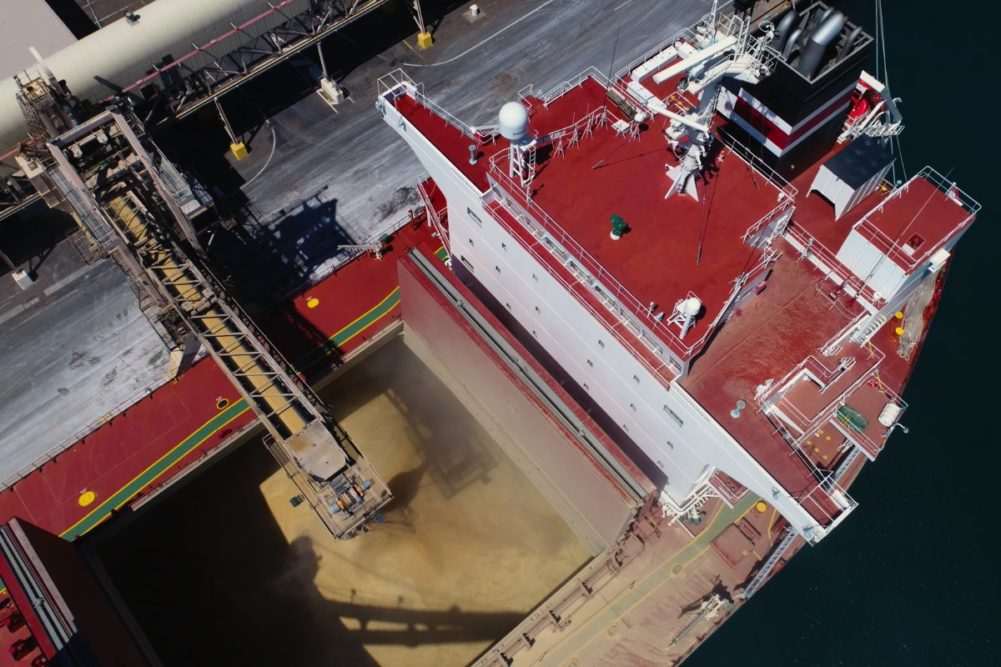PERTH, AUSTRALIA — The CBH Group, a leading Australian wheat exporter, said it has joined a consortium of companies participating in the Blue Visby project, which supports research into practical solutions that help reduce the international shipping industry’s greenhouse gas emissions.
The consortium, which includes 28 companies and institutions from around the world, has been working on the Blue Visby Solution, an integrated, multilateral shipping scheduling and contractual system that notifies ships of the optimal date and time for arriving at their destination, eradicating the old “sail fast, then wait” approach to sailing.
The Blue Visby Solution aims to distribute the arrival times of groups of ships heading for the same destination, providing an optimal target arrival time for each ship while maintaining the scheduled arrival order. This is achieved by analyzing several factors, including the weather, performance of each ship together and congestion at the destination. Crucially, the Blue Visby Solution provides the contractual architecture necessary, including a sharing mechanism for costs and benefits.
As vessel charterers, CBH is participating in the Blue Visby project by sharing vessel information to the neutral, independent Blue Visby Solution platform, which then communicates to the vessel their optimal arrival time, determined by an algorithm — without changing arrival order or time. It is only by consortium members co-operating and sharing vessel information that productivity efficiencies and greenhouse gas emission reductions can be achieved.
Pia van Wyngaard, head of chartering at CBH, said that by maximizing the efficiency of each vessel, CO2 emissions could be reduced by up to 5%.
“CBH is proud to be part of the Blue Visby project and being part of a global solution to reduce marine transport CO2 emissions,” van Wyngaard said. “By providing vessel operators with an optimal arrival time, they can then adjust the vessel’s cruising speed and reduce fuel consumption by using the most efficient speed and route.
“The CBH Group has a target of reducing our Scope 1 and 2 emissions by 50% by 2030, and for our site to customer emissions to be net zero by 2050.”






